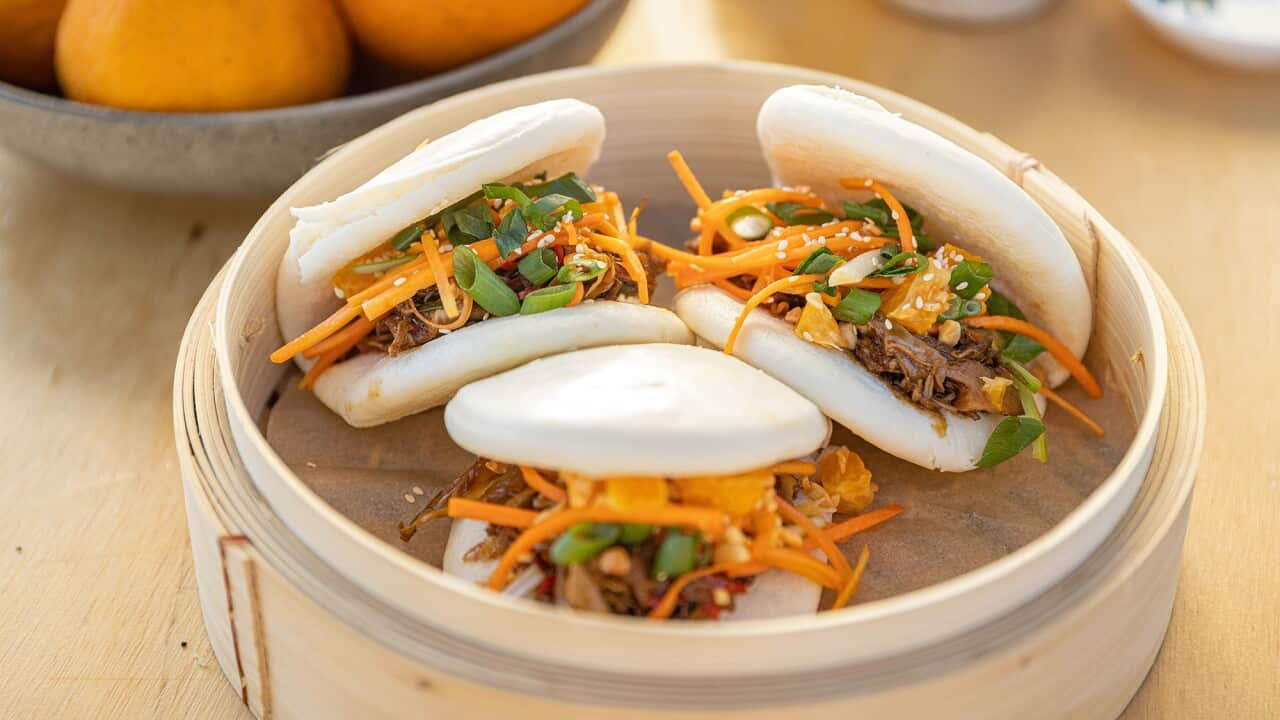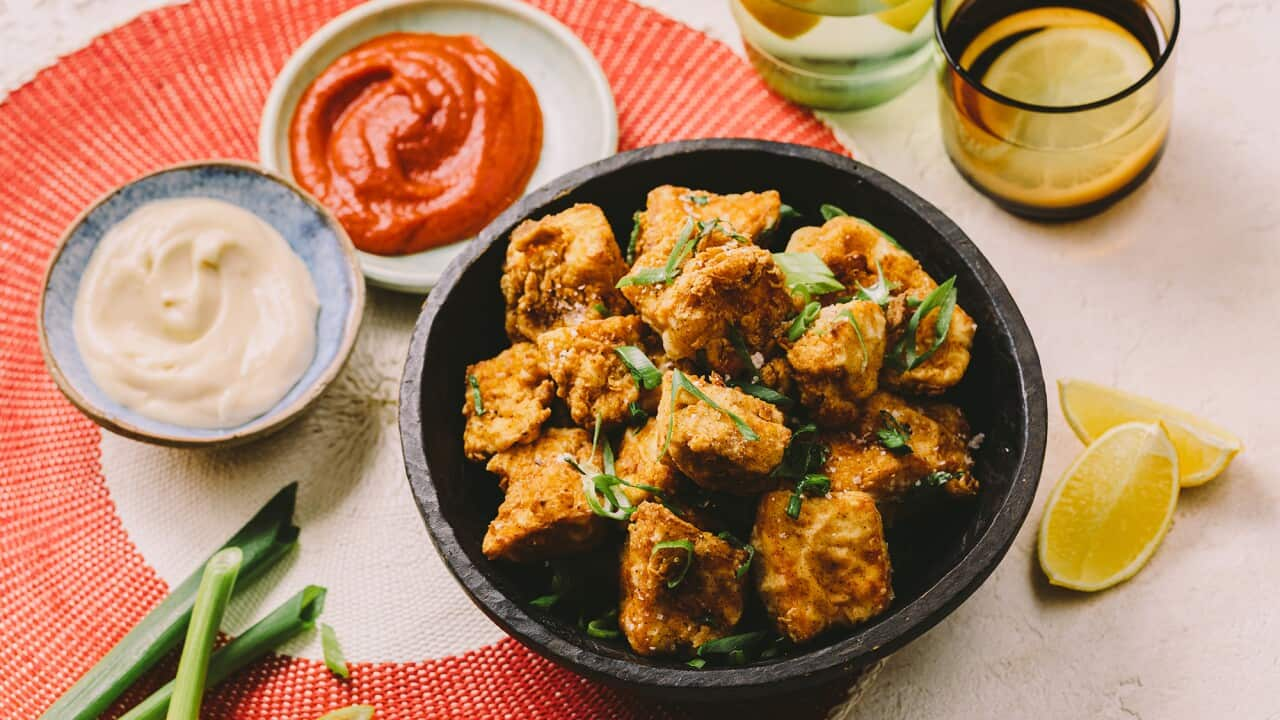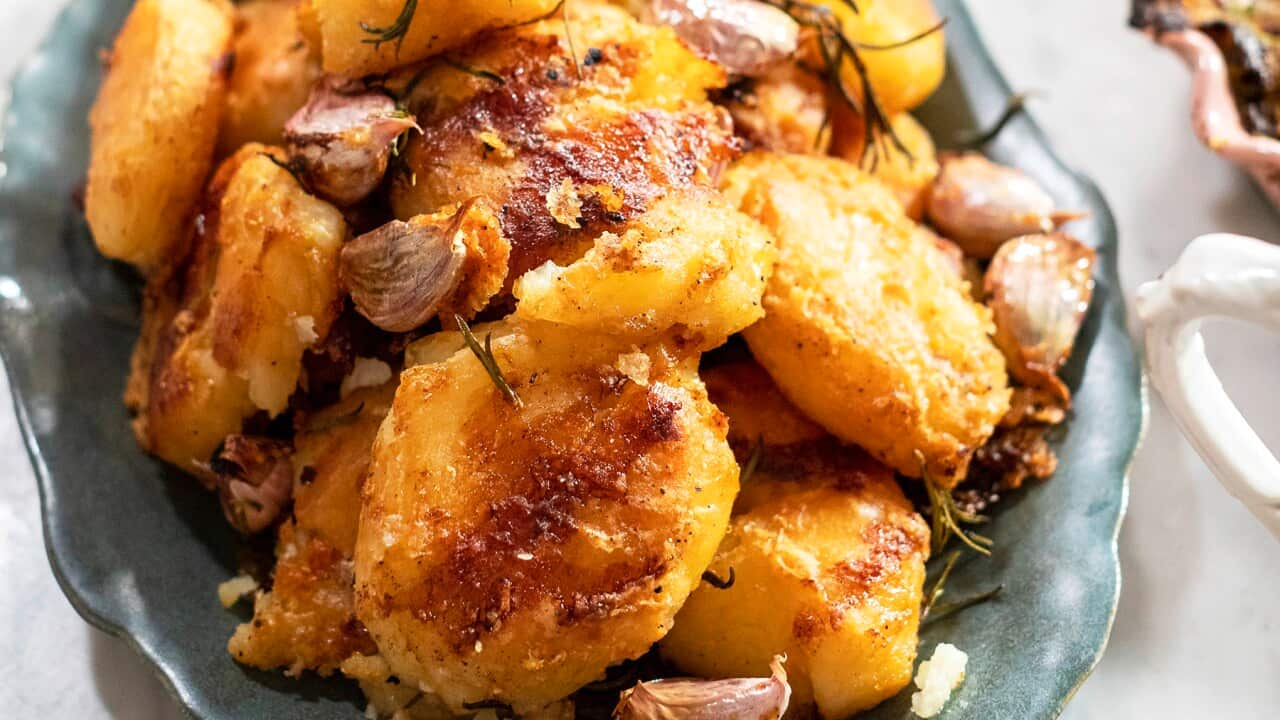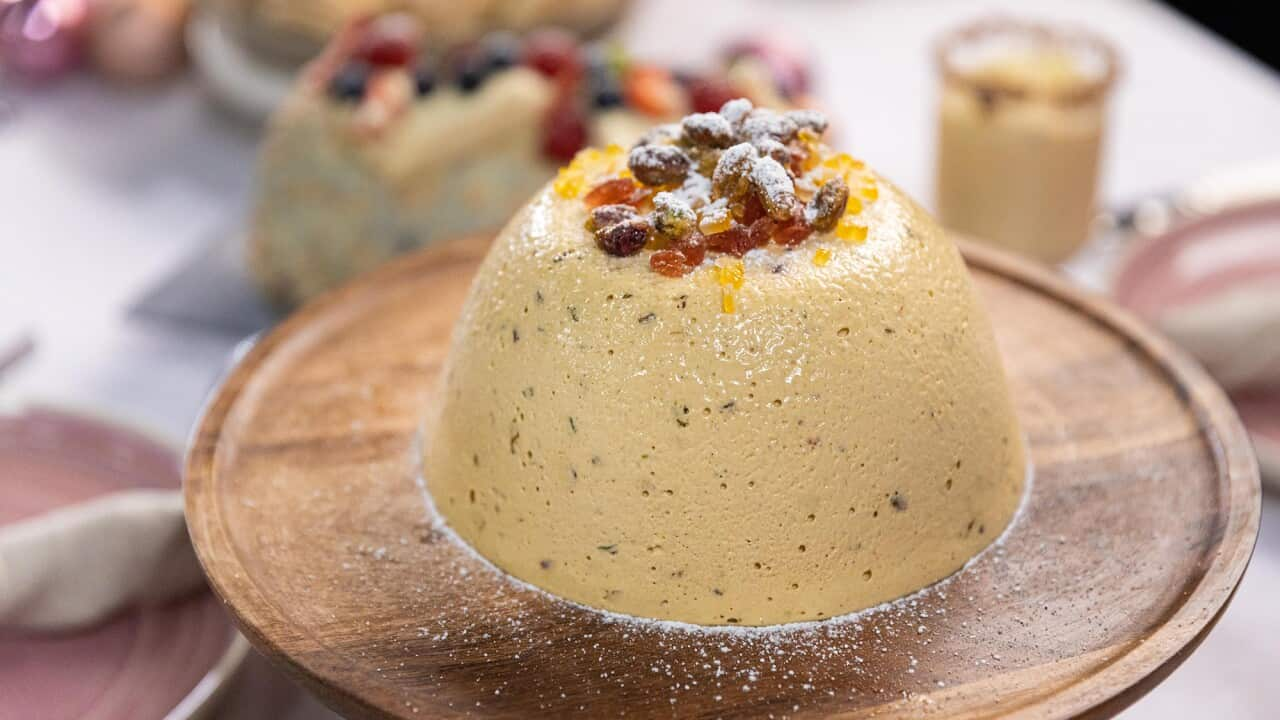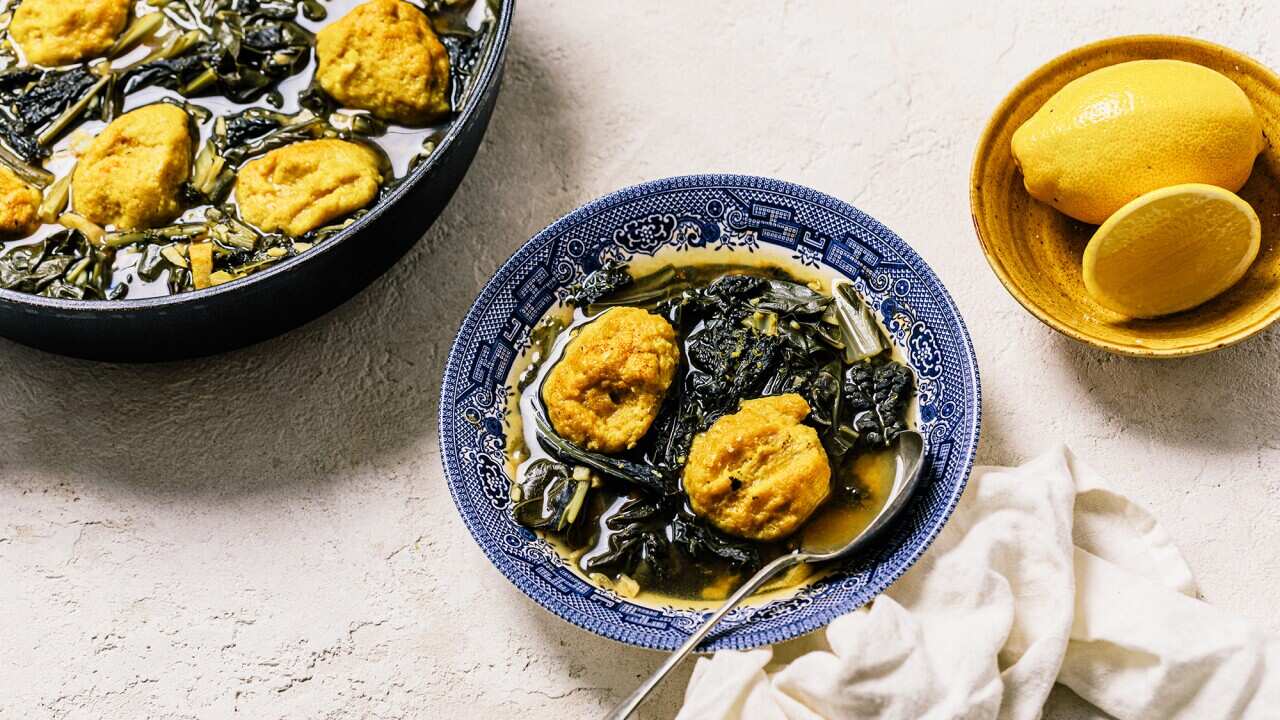makes
20-25
prep
45 minutes
cook
40 minutes
difficulty
Mid
makes
20-25
serves
preparation
45
minutes
cooking
40
minutes
difficulty
Mid
level
Ingredients
- 150 g white sweet potato, peeled and chopped
- 1 tsp sugar
- 300 g glutinous rice flour
- 5 tsp pandan juice (about 8-10 leaves squeezed)
- 200 g plain flour, for dusting
- 200 g gula melaka (palm sugar), chopped
- ½ cup desiccated coconut, steamed
Resting time 15 minutes
Instructions
Place the sweet potato and sugar in a saucepan and add enough water to cover. Simmer over medium heat until the sweet potato floats to the surface of the water and is very tender. Drain and reserve 200 ml of the cooking water. Mash the sweet potato until smooth.
Place the glutinous rice flour in a large bowl and mix in the mashed potato. While mixing, slowly add in the reserved cooking water and pandan juice (adding a little more or less depending on what colour you prefer) and stir to combine well. Knead the mixture until a smooth dough forms. Allow to rest for 10 minutes.
Roll the mixture into balls about 2 cm wide and place on a tray heavily dusted with plain flour. Heavily dust your palm and fingers with plain flour to prevent sticking, then working one at a time, flatten the balls in the palm of your hand to create a cavity. Place 1 teaspoon of the chopped gula melaka in the centre, then bring up the sides of the dough around it, to reform the ball. Once the balls have been filled, ensure they are cooked almost immediately.
Working in batches of 3-5 balls, drop the balls into a large saucepan of boiling water and cook just until they float to the surface, remove, drain and roll in desiccated coconut.
Note
• To steam the coconut, combine the coconut in a bowl with ½ tsp salt and 2 pieces pandan leaf, then steam in a double boiler lined with muslin for 10 minutes.
• Ondeh ondeh are best eaten at room temperature as the sugar filling will remain liquid.
Image by Adam Liaw.
airs Thursdays at 8pm on SBS. Visit the for more details, recipes and guides.
Cook's Notes
Oven temperatures are for conventional; if using fan-forced (convection), reduce the temperature by 20˚C. | We use Australian tablespoons and cups: 1 teaspoon equals 5 ml; 1 tablespoon equals 20 ml; 1 cup equals 250 ml. | All herbs are fresh (unless specified) and cups are lightly packed. | All vegetables are medium size and peeled, unless specified. | All eggs are 55-60 g, unless specified.

